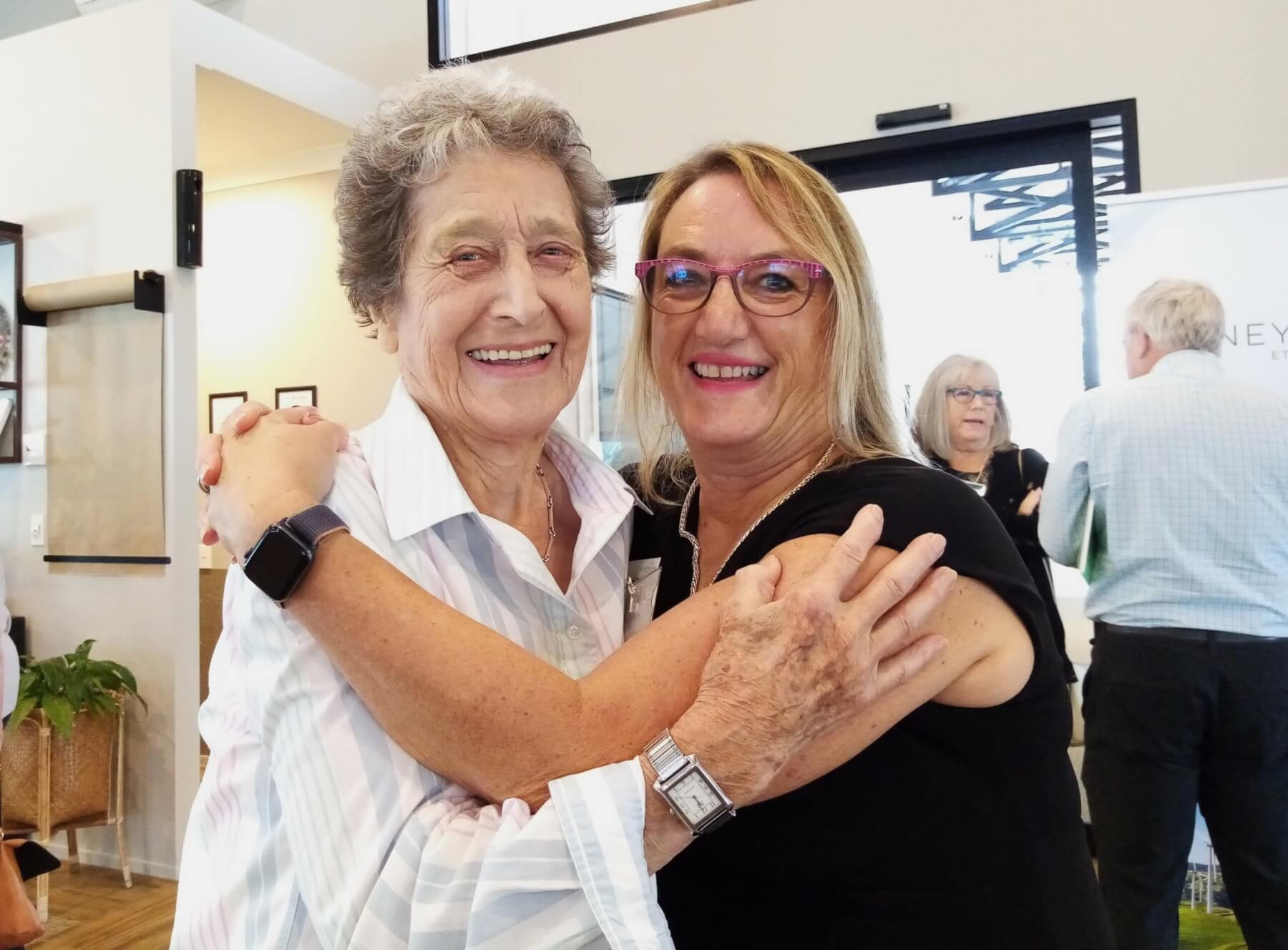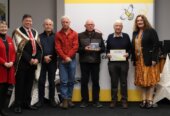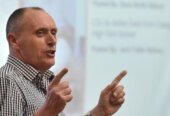
Teacher and student reunited … Rosemary Hill and her former student Carey Church at Friday’s U3A lecture where Carey spoke on ethical investing.
A talk delivered in Cambridge last week inadvertently championed ‘the teacher effect’ as much as it did its central topic of ethical investing.
Carey Church generated much interest with her address to the March U3A meeting on ethical investing, but it was her heartfelt endorsement on the impact made on her life by former Cambridge High School geography teacher Rosemary Hill that touched many.
Given this week’s teachers’ strike, said to be one of the biggest in the country’s history, the message was timely. Carey spoke of how Rosemary’s teaching had inspired her to do an initial degree in earth sciences and had sharpened her awareness of the wider world to a point where the value of global responsibility remains a key driver for the work she does today in the field of financial investment.
When Rosemary offered the formal thanks at the end of Carey’s address, the audience applauded generously.
Carey, co-founder of the Cambridge U3A group, has international credentials in investment and recently completed a first-class honours degree in law. Her lecture was entitled ‘What do Weapons, Animals and Chocolate have to do with investing?’
After adding an economics component to her original earth sciences degree, Carey went on to carve out a career in the financial and investment sector in Australia and New Zealand. She and her husband Peter launched Moneyworks in 1997, and over the last five years have concentrated their efforts on ethical investing. Last year, the company became the first financial adviser in New Zealand to achieve a B Corp certification which meant it joined a global network encouraging business to be a ‘force for good’.
A core takeaway from the lecture spoke to the growing number of individuals and businesses that are today choosing to invest in companies that meet strict standards of ethical practice, particularly as it relates to human rights or environmental issues, animal welfare and weapons.
Outlining ethical investment, Carey said: “There are a lot of words associated with it… our definition is responsible investment that is sustainable, environmentally and socially beneficial, and one that reflects your values.”
She said readily available free resources providing information on companies’ sustainable practices are seeing clients increasingly call on their fund managers to invest in companies with an ethical profile aligning more closely to their values.
“People don’t want their funds tied to companies with dubious records on animal welfare, or the supply of weapons. Even those who traditionally invest solely to make a profit and regard ethical investing as a ‘fad’ are less enthusiastic today about investing in companies where there are human rights or environmental violations.”
“People ask whether if they invest to reflect their values it means they can expect lower returns for their money. The reality is they are likely to get greater returns.”
Carey said international research showed that 89 percent of people wanted their values represented in their investment.
“We are starting to see change,” she said.









